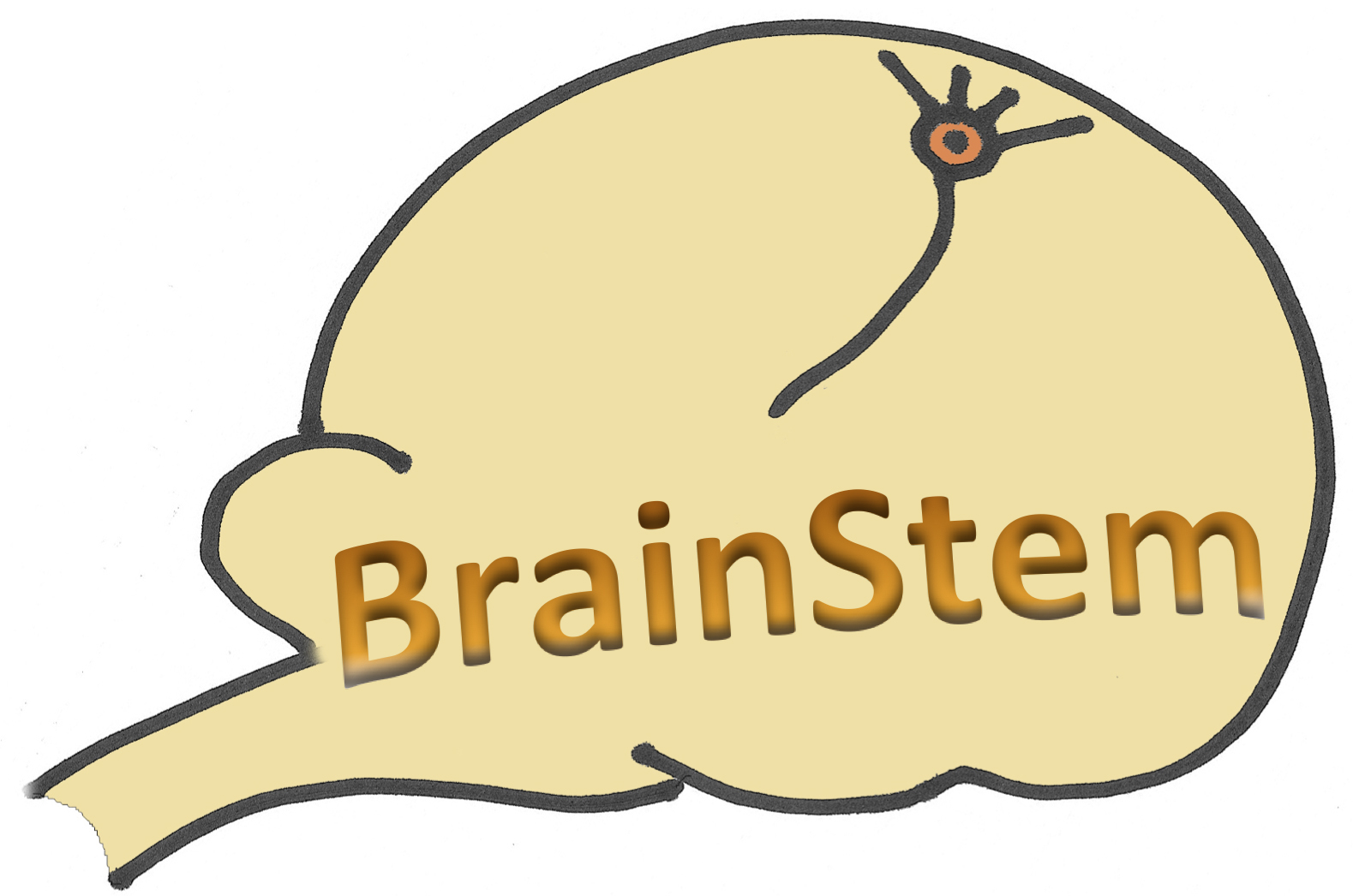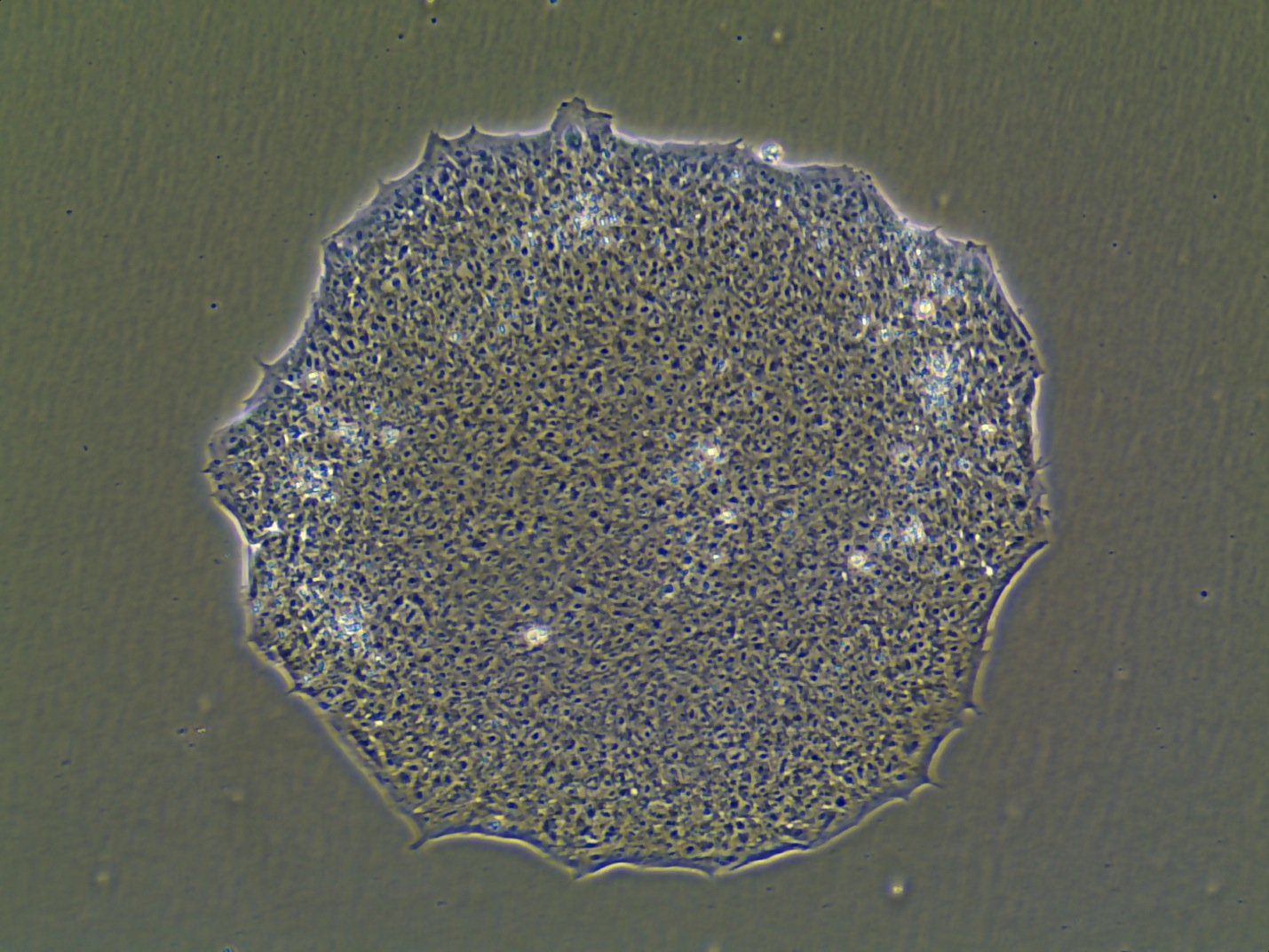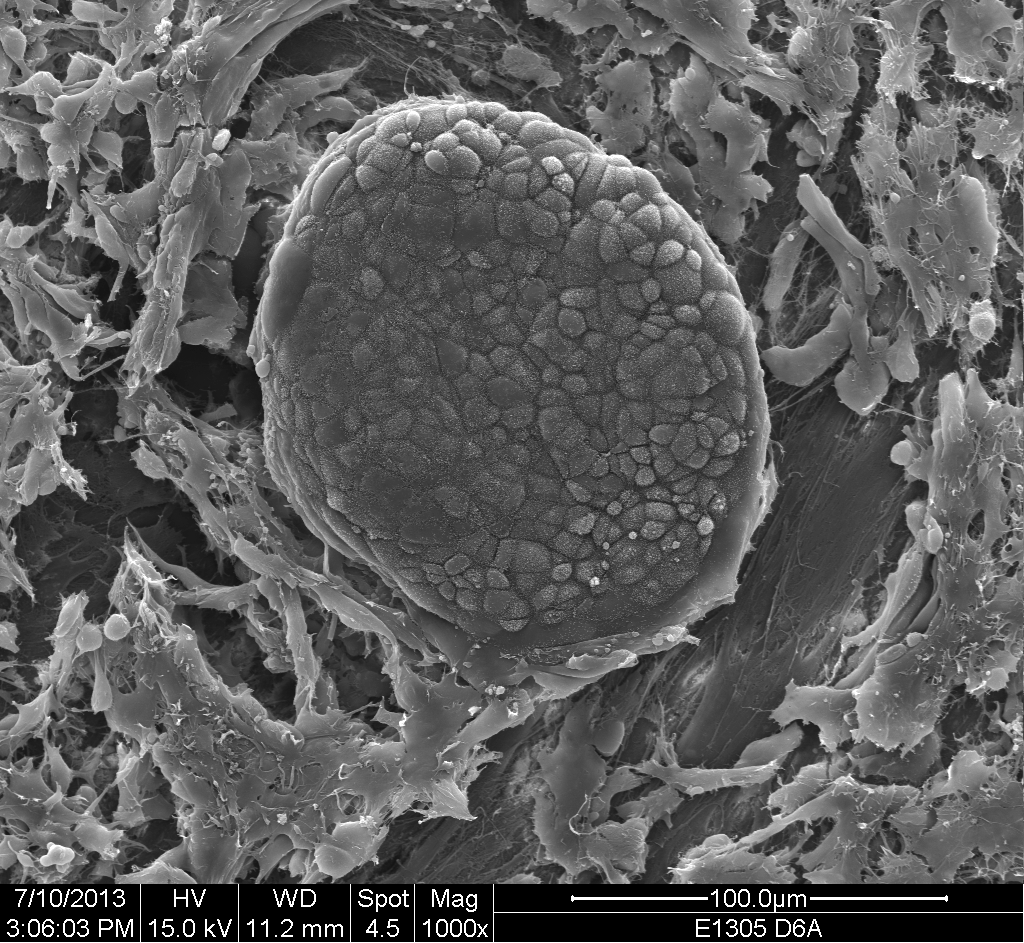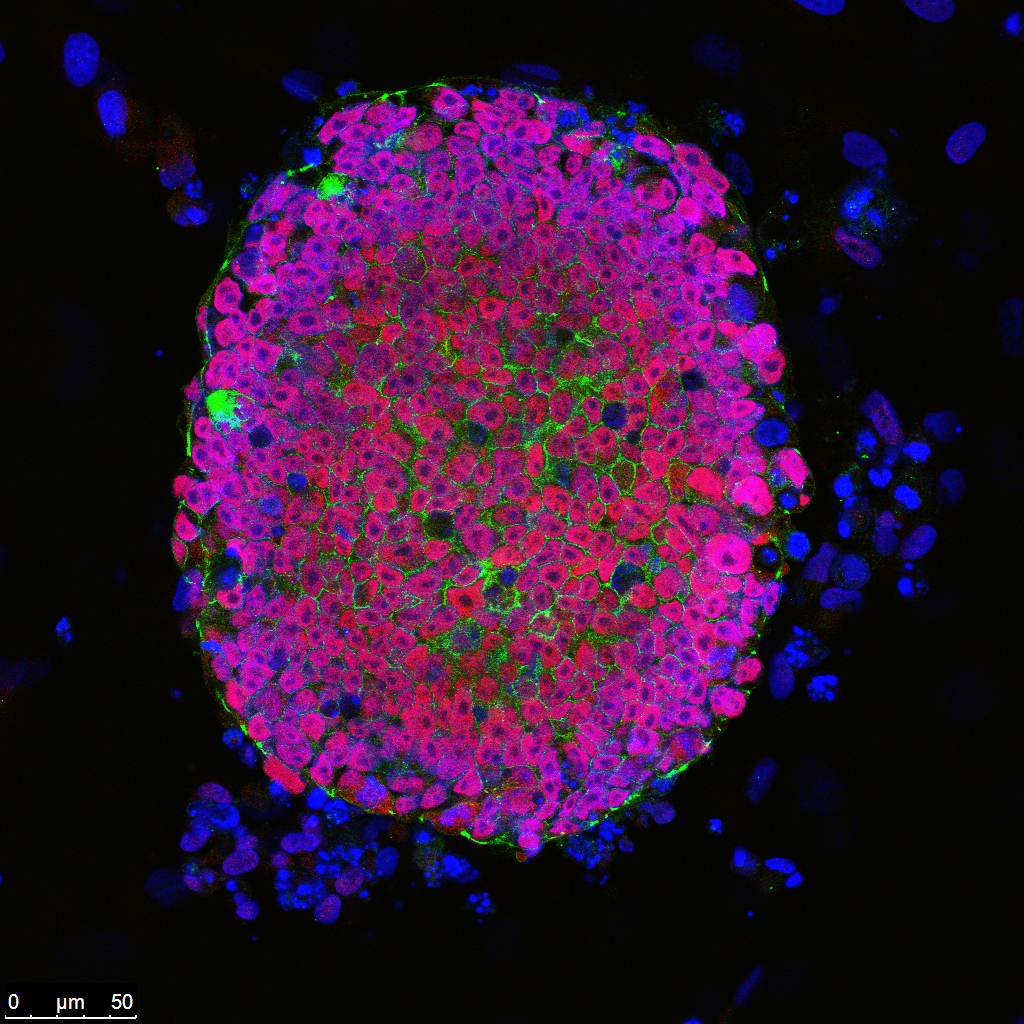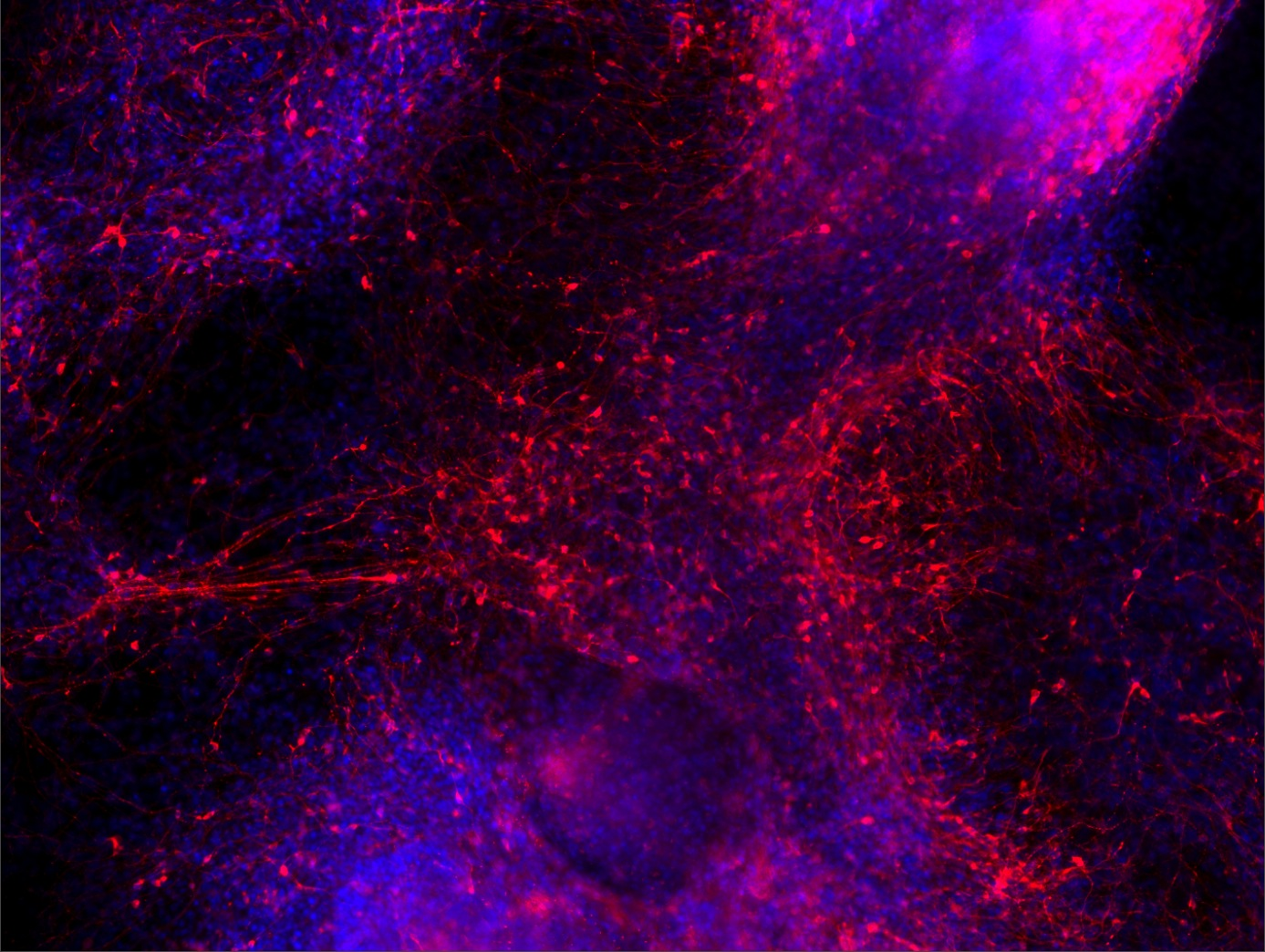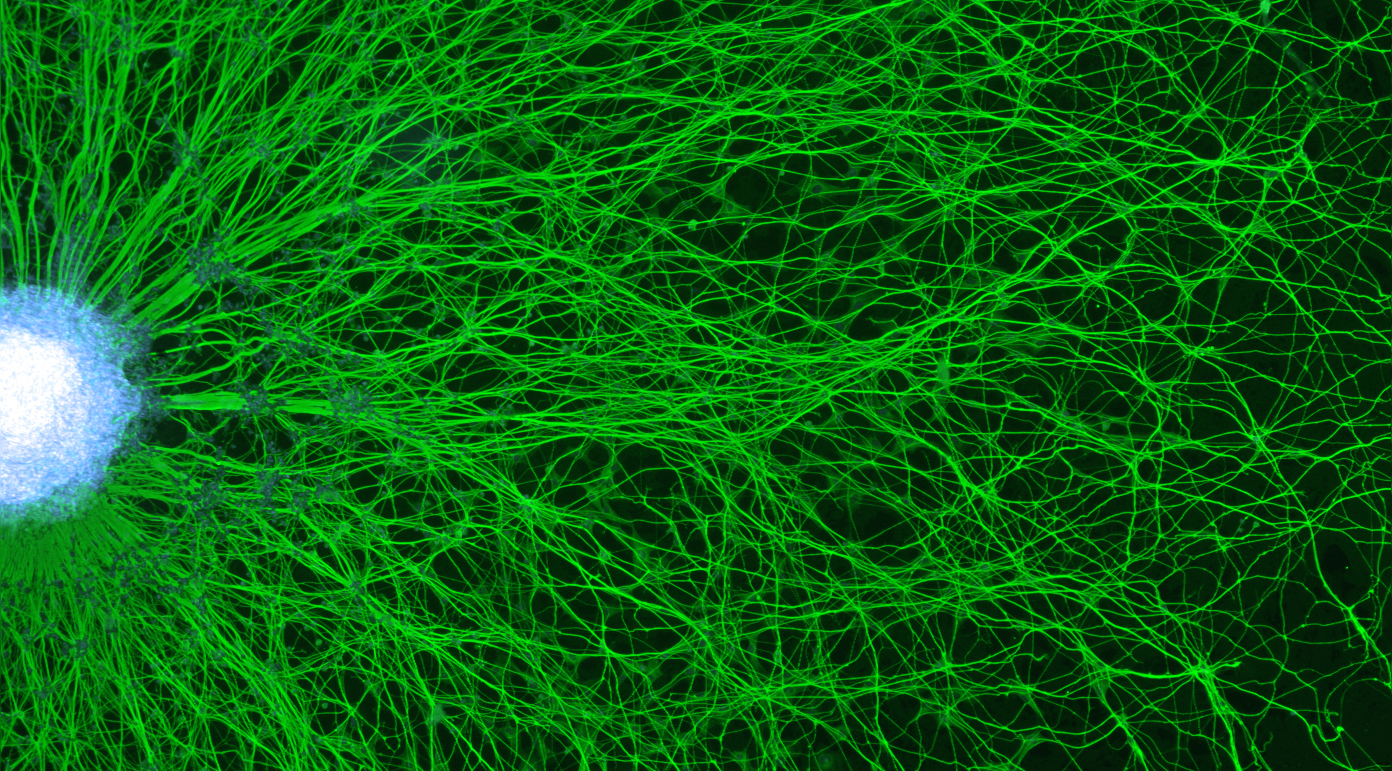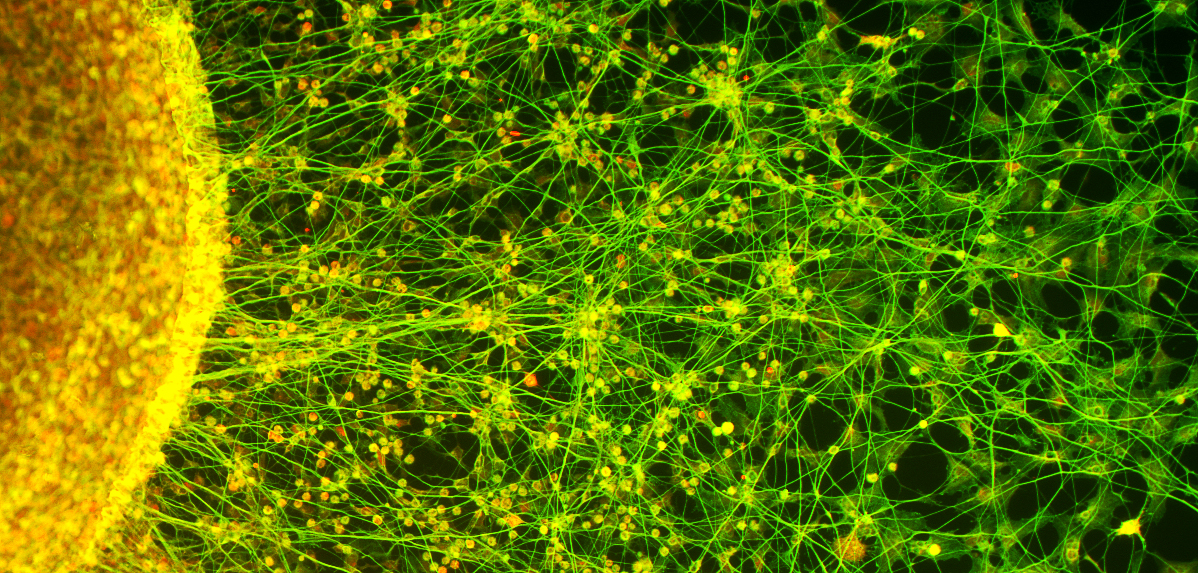About the Center
Human induced pluripotent stem cell culture, neural differentiation and gene-editing: in theory and in practice
Hands on course in iPSC handling and differentiation of such towards neurons and astrocytes, including demonstration of CRISPR/Cas9 gene editing and nucleofection based reprogramming of fibroblasts into iPSC. To go to the sign up page click here
Aim and content
This course is free of charge for PhD students at Danish universities (except Copenhagen Business School).
All other participants must pay the course fee. Anyone can apply for the course, but if you are not a PhD student, you will be placed on the waiting list for the course until enrollment deadline. After the deadline of enrollment, available seats will be allocated to students on the waiting list.
Learning objectives: A student who has met the objectives of the course will be able to:
Skills:
- a. Freeze and thaw human induced pluripotent stem cells
- b. Maintain and expand human induced pluripotent stem cells
- c. Differentiate human induced pluripotent stem cells into divergent neural cell types (including astrocytes, oligodendrocytes and cortical neurons) using the latest 2D and 3D methodologies
- d. Analyze induced pluripotent stem cell-derived neural cells using different molecular methodologies
- e. Design CRISPRs for gene-editing of pluripotent stem cells Knowledge:
- f. Acquire a detailed understanding of the derivation of pluripotent stem cells
- g. Acquire a detailed theoretical understanding of the states of pluripotency
- h. Acquire a detailed understanding of early neural developmental processes and molecular cues that govern neural patterning
- i. Gain detailed knowledge on state-of-the-art methods for culturing pluripotent stem cells
- j. Gain detailed knowledge on the latest methods for differentiating pluripotent stem cells into neural cell types (with focus on neurons, astrocytes and oligodendrocytes)
- k. Gain expertise on use and application of CRISPRS in gene-editing of pluripotent stem cells Competences:
- l. Will be able to develop custom-designed experiments in their own lab pertaining to pluripotent stem cell culture and differentiation into neural cells
- m. Will be able to custom-design CRISPRs for gene-editing of their own cell lines Content
The course follows the following topics: Pre-implantation embryology, Pluripotent stem cell biology, Neural development and molecular patterning of the developing brain, Neural differentiation, Tissue culture of pluripotent stem cells, Tissue culture of different neural subtypes, CRISPR technologies and applications in pluripotent stem cells
Participants: PhD students, postdoctoral researchers and technicians embarking on culture of pluripotent stem cells with application for neural cell studies. Describe the target group of the course and required qualifications (if any) by the participating PhD students.
Relevance to graduate programmes: The course is relevant to PhD students from the following graduate programmes at the Graduate School of Health and Medical Sciences, UCPH: All graduate programmes
Language: English
Form: Lectures, Keynote lectures, Group exercises, Practical laboratory work, Poster presentations
Course director: Kristine Freude, Associate Professor, Dept. of Veterinary Clinical and Animal Sciences, kkf@sund.ku.dk Vanessa Hall, Associate Professor, Dept. of Veterinary Clinical and Animal Sciences, vh@sund.ku.dk
Teachers (Names, titles, affiliations): Kristine Freude, Associate Professor, University of Copenhagen Vanessa Hall, Associate Professor, University of Copenhagen Poul Hyttel, Professor, University of Copenhagen Benjamin Schmid, Bioneer, Denmark Mark Denham, Association Professor, Aarhus University, Denmark Maria Joana Albuquerque Osorio, University of Copenhagen.
Dates: 28th May to 1st June 2018 Course location University of Copenhagen Dept. of Veterinary Clinical and Animal Sciences Grønnegårdsvej 7 1870 Frederiksberg C
